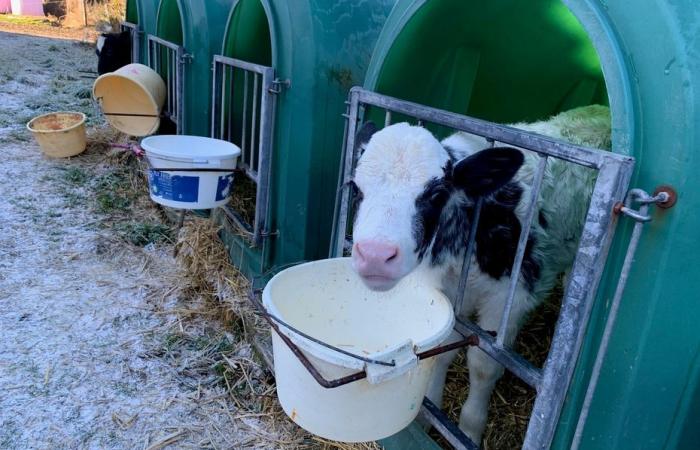While several community websites are victims of hacking in France, the agricultural sector is also affected. Since the night of December 14 to 15, the online platform allowing the identification of farm animals has been inaccessible in twenty-two departments in the southwest, including Corrèze and Haute-Vienne. And the daily lives of farmers suddenly became even more complicated.
The essentials of the day: our exclusive selection
Every day, our editorial team reserves the best regional news for you. A selection just for you, to stay in touch with your regions.
France Télévisions uses your email address to send you the newsletter “The essentials of the day: our exclusive selection”. You can unsubscribe at any time via the link at the bottom of this newsletter. Our privacy policy
They have returned to the age of paper declarations. Since December 15, around 30,000 farmers in 22 departments in the southwest have been affected by a cyberattack. The Synel herd management software used by cattle, sheep and goat breeders is unusable.
It is, in fact, its host, Arsoé de Soual, based in Tarn and which takes care of putting agricultural digital services online, which was the victim of hacking. In Limousin, Corrèze and Haute-Vienne are affected, not Creuse, whose system depends on another host.
In his Limousine breeding farm in Saint-Yrieix-la-Perche, Julien Bonneaud, in front of his computer, can only observe: “Today, when we go to the site, it says 'sorry, unable to access this page'.
The Synel software usually ensures the identification of animals by declaring birth, death or sale. Any modification affecting the herd must be scrupulously informed within seven days. In the event of failure to comply with these obligations, farmers are exposed to financial sanctions during inspections.
At Julien's, a cow lost one of her two buckles. He would normally have to order it from the department's breeding establishment, via Synel. Without the two loops, it is normally impossible to sell it or take it to the slaughterhouse.
On another farm in Corrèze in Saint-Exupéry-les-Roches where we join Daniel Couderc, the president of the chamber of agriculture, little calves, born in recent days, do not have their curls.
“The impact is significant on the trade of small animals, such as these small dairy calves. Those born during this period could not be declared and therefore, in theory, cannot be sold.”
In theory only, because the chambers of agriculture concerned make sure not to paralyze trade via their livestock establishments (EDE) responsible for identification.
“What we advise farmers to do is to call their EDE who will give them a manual passport and it will be regularized once everything is back to normal,” Daniel Couderc further specifies.
Not necessarily enough to reassure Julien Bonneaud who fears omissions.
“I like to declare everything as it happens. There, nothing is up to date. I have thirty cows that have left. We bought others. The inventory, we don't even know where anymore we are. If this lasts a long time, I think we will forget things and behind that, who will be penalized?”
Warned, the agents responsible for controls are nevertheless supposed to adapt. Due to the situation, state services in slaughterhouses will, for example, reduce their inspections in the event of missing earrings on the animals' ears or a gender error on the passport. Exceptions are also granted so that animals do not get stuck.
In a press release intended for the sector, the Haute-Vienne Chamber of Agriculture assures that “the first assessments are reassuring“. According to her, this vast data file would not have been the subject of “information theft“. For any urgent needs, breeders are invited to contact the identification service at 05.87.50.40.30 or by email at [email protected].
The origin and objective of the cyberattack remain unknown to this day, but everything suggests that it is a ransom demand as has already been the case, particularly for certain hospitals.






